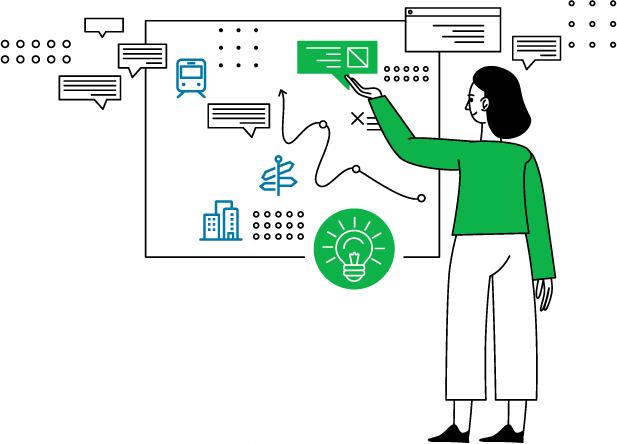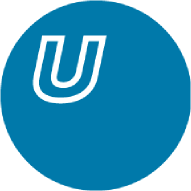

This is a time when Canada must harness its community-driven resilience. We’re asking you to share examples of how Canadian communities are responding to the crisis with creativity and imagination. Collective problem-solving and collaboration will be instrumental in how Canada mitigates the local impacts of COVID-19 and creates on-the-ground solutions.
Highlighted Initiatives
WindsorVax Finders is providing appointment times at mass vaccination clinics & local pharmacies offering the vaccine.
17-year-old Noah Gascon is spearheading the initiative and says the link will provide information and resources along with directing individuals to experts.
TOWN OF WHITBY Economic Recovery Plan 2020-2021
Before the COVID-19 outbreak, the Town of Whitby was in a relatively strong economic position with a low
industrial vacancy rate and a renewed vibrancy in our two historic downtowns. Significant growth was
happening in the West Whitby development and applications were moving forward for Brooklin and Port
Whitby.
Published October 2020
City of Windsor’s Economic Recovery Strategy
Windsor Works Report
In February of 2020, Windsor City Council commissioned an economic development report called Windsor Works – An Economic Development Strategy for the City’s Future Growth. Between February 2020 and February 2021, City officials worked with an expert firm to complete detailed research involving hundreds of hours of local stakeholder consultations. Qualitative analysis was done along with benchmarking against other cities in Canada and the world in relation to productivity and labour market performance. Case studies were reviewed and economic success stories incorporated.
This report is the culmination of that work:
Sanctuary TO holding vaccination clinics for individuals unable to access formal clinics
The idea is that this is a low-barrier access clinic, prioritizing friends who are unable to access a more formal vaccine clinic. This clinic will be surveillance-free, with no pre-registration or documentation/health cards required. This clinic is prioritizing homeless, under-housed, undocumented and sex-workers communities.
“Jardin des espoirs” is a winter station in Montreal, Illuminated and decorated with multiform structures reminiscent of the colours of cargo ship containers sailing the Saint-Laurent River
As part of the City of Montreal’s Bureau du design call for proposals for the “Rethinking Public Space” qualification, with the ultimate goal of designing and building “winter stations” in 17 Montreal boroughs — The challenge was to produce installations capable of withstanding the Montreal winter, which would be well adapted to the pandemic context, and that would improve the experience for residents.
The winter station also aims to promote local commerce — passers-by are invited to get ribbons from nearby stores so that they can be attached to the installations. This fulfils the objectives of bringing joy to people and encouraging the local economy.
Every One Every Day Kjipuktuk/Halifax is bringing North End neighbours together to design and start projects that benefit them and the community.
The projects you will find here are all about doing practical, creative things with people nearby, and finding more ways for people to connect and learn across the neighbourhood. They are made possible by local residents coming together to share their ideas, time and skills for mutual community benefit. The wide range of sessions such as neighbourhood walks, making your own dream catcher, or preparing healthy snacks for kids, means that there are many different ways to get involved and fuel your creativity. They are all free to attend and open to everyone. This 4 week program will inspire a growing network of friends and neighbours who are excited to bring new ideas and projects to life in the neighbourhood.
Neighbourhood Starter Kits to help a group of neighbours or individuals wanting to participate in projects that strengthen the neighbourhood.
Solon, a non-profit organization in Montreal, has partnered with Participatory Canada to create the Our Neighbourhood Project starter kits. These project kits enable people to get
together, learn from one another, and lend a hand during these trying times.
There are 9 free, practical and useful starter kits to choose from. Each kit includes materials and support, and an opportunity to meet new people. It could be seeds to grow flowers on your street, a sewing machine to mend old clothes, or tools to repair your bike. Everything is provided! Sign up and start projects with and for your neighbourhood! To start a project, you will need a minimum of 3 people. The Our Neighbourhood team is here to connect you with others in your building, on your street or spread out across the neighbourhood. Together we’ll build mini ecosystems across the Tolhurst/St-Benoît area.
Available in French and English
plazaPOPS is a community-lead, high impact, and low cost, process to transform plaza parking lots into free and accessible gathering places.
Responding to the lack of amenities along Toronto’s inner suburban arterials for pedestrians and TTC riders, plazaPOPS seeks to support and enhance the vibrant communities and businesses that already characterize Toronto’s inner suburbs, suggesting context-sensitive approaches to their densification. plazaPOPS is currently working with the City of Toronto on a SSHRC funded project to understand how to turn our successful pilot into a sustainable citywide program. Transforming privately-owned strip mall parking lots into community gathering spaces is a pragmatic way to enhance inner suburban main streets and encourage outdoor gathering that supports small businesses — an especially important element of “bringing back main street” in response to COVID-19.
Peg is a tracking systems for a curated set of indicators that matter most to Winnipeg’s well-being.
Peg measures the well-being of community year over year – in ways that count. It reports on everything from the health of babies born in Winnipeg right through to how many of them graduate 18 years later. It tracks how much garbage we take to the landfill, how to move around the city and how time is spent. It’s through Peg that Winnipeggers can learn how their life, their neighbourhood, and their city is changing. Peg is a starting place for Winnipeg’s citizens, business owners, and policy makers to learn the facts so they can lead change to create a better city. Peg is a community indicator system, tracking measures called “indicators” that reflect and measure our city’s well-being. The indicators, developed by more than 800 Winnipeggers, community groups and data experts, are grouped into eight theme areas: Built Environment, Basic Needs, Economy, Education & Learning, Health, Natural Environment, Social Vitality & Governance and Demographics.
OpenSidewalks.com is a platform to map pedestrian paths, like sidewalks for accessibility, in ways that users can understand detailed attributes like width, surface composition, steepness, and shared traffic.
OpenSidewalks leverages collaborative collection and sharing of data in OpenStreetMap, an open database of geographic information. OpenSidewalks is led by the Taskar Center for Accessible Technology (TCAT) at the University of Washington, whose mission is to develop and deploy technologies that improve quality of life for people with disabilities.
Main street shops in the UK are repurposed as climate emergency centres: Community groups are revitalising retail units in often moribund high streets to help people and planet
The project self-funds by using a business model that enables owners of currently vacant business premises to reduce their Business Rates payments by up to 100% through ‘meanwhile leasing’ the property for community benefit to a not for profit / charitable organisation (the CEC). This means the project can acquire a vacant property to use to generate income through activities that meet local community needs in a sustainable way. In addition, the property owner can build good relationships with the local community and the local Council through supporting a creative and positive sustainability initiative.
Edmonton earmarks $12M for COVID-19 projects for 2021
Edmonton will spend $12 million this year on COVID-specific initiatives to help the city cope with the pandemic, city council agreed Wednesday. The funding includes tax relief for businesses in 13 areas of the city and $1.3 million to support vaccination operations at the EXPO Centre. It includes nearly $6 million to install ultraviolet air-purification technology in Edmonton Transit vehicles.
A pilot program has been approved to allow responsible drinking in select public areas in Delta, BC
Drinking will be permitted seven days a week, from 11 a.m. to dusk, but there will also be no drinking zones at the sites. During the pilot, the public can provide comments through a Delta online survey. Both cities identified park sites that had onsite amenities such as washrooms, picnic tables and/or picnic shelters, and that are routinely inspected by city staff.
Penticton endorses public drinking on beaches and in parks
The initiative was first implemented last summer to support the struggling craft beer, wine, and spirits industry during the COVID-19 pandemic. The city received letters of support from Travel Penticton, the city’s tourism arm, and seven local breweries. On Tuesday, city council unanimously approved first, second and third reading of a bylaw to permit the responsible consumption of alcohol on select beaches and parks along Okanagan and Skaha lakefronts. The areas include Okanagan Beach east of Power Street, Rotary Park, Okanagan Lake Park, Marina Way Mark, and the Skaha Lake waterfront between south beach drive and Parkview Street. Some beach and park users did complain about the overwhelming amount of garbage last summer which could be partially attributed to the pilot project. City council, during the deliberations for the 2021 financial plan and budget, directed $88,500 towards increasing garbage and recycling capacity.
New Westminster has legalized drinking in 7 local parks
The city council of New West has passed the motion to approve a park drinking pilot program for 2021. The city is just awaiting for the bylaw to be drafted.
Reclaim Your Campus is a toolkit for students or individuals seeking to organize to bar enforcement agencies from entering their campus or community spaces.
Reclaim Your Campus is a movement of students seeking to reclaim control of their campuses. Institutions cannot continue to ignore and harm the students who finance, occupy, support, create, subsidize, and fortify them. The Reclaim Your Campus movement encompases both the De-ICE Your Campus Initiative and the Cops Off Campus Initiative, which was inspired by the work of Jael Kerandi, the co-author of the Cops Off Campus initiative, and other student organizers at the University of Minnesota.
The City of Mississauga is conducting six consultation sessions with Black communities to generate greater insights into their lived experiences, challenges and opportunities to create a more inclusive and accessible City and Region.
These consultations have been derived from Council Resolution 207 passed in June 2020 in an effort to address anti-Black and anti-Indigenous racism, which have been identified as historic, pervasive, institutional and systemic issues in Mississauga that must be addressed. As part of Resolution 207, the Mayor established a Black Caucus composed of Black community members who are an advisory body working with the Mayor on issues pertaining to the Black community in addressing racism, discrimination and systemic changes in Mississauga.
EDGE UP 2.0 is a program with Calgary Economic Development to provide training for 320 displaced oil and gas professionals for careers in tech.
EDGE UP (Energy to Digital Growth Education and Upskilling Project) is a multi-stakeholder program launched in Calgary in 2019 to test new approaches to skills development for workers to re-engage with technology jobs being created in all sectors of Calgary’s economy. The EDGE UP 2.0 program is led by Calgary Economic Development and delivered in partnership with the Information and Communications Technology Council, University of Calgary Continuing Education, SAIT, Bow Valley College, Mount Royal University, and Riipen. The program targets professionals displaced from the structural change in the oil and gas sector. Students are trained for in-demand information technology jobs including data analysts, full-stack software developers, information technology project managers, cybersecurity analysts, UI/UX Designers, Digital Marketing, etc. Details on the NEW EDGE UP 2.0 program and how to apply will be available June 2021.
Support group Burnt Out Daughters discusses pressures of family expectations and more
Two South Asian women from the Greater Toronto Area have taken their conversations around cultural pressure and brought them to the forefront by creating a peer support group called Burnt Out Daughters. The group started when sharing feelings about being burned out by the expectations placed on them as South Asian women, which included pressure around relationships, getting married and having children.
Pilot project in Edmonton will allow people to drink alcohol in designated areas
City council approved a pilot project that will make it legal for people to drink in 47 designated sites in seven parks in the river valley. Starting May 28 2021, picnic sites in Sir Wilfrid Laurier, Whitemud, William Hawrelak, Government House, Victoria, Gold Bar and Rundle parks will be identified as alcohol-friendly. The pilot runs until Oct. 11, after which the city will present a report to council outlining the successes and failures of the test. The Alberta government has allowed people to drink alcohol in provincial picnic sites since June 2020 under the Gaming, Liquor and Cannabis Amendment Act.
Built for Zero is a data tool that gives a view of homelessness across the entire community — and allows teams to work toward ending it.
It works through putting together a “By-name list” – a comprehensive list of every person in a community experiencing homelessness, updated in real time. Using information collected and shared with their consent, each person on the list has a file that includes their name, homeless history, health, and housing needs.By maintaining a by-name list, communities are able to track the ever changing size and composition of their homeless population. They know current and detailed information on every homeless person in a given subpopulation.
The City of Halifax is considering ways to help improve the predictability of property taxes for commercial property and business owners by bringing in a rolling three-year Assessment Averaging Program.
This program will include phasing-in the annual valuation increase over a three-year period, for those properties exceeding the average commercial increase by five per cent.
This will offer more certainty to commercial property and business owners that experience sudden spikes in property assessments with the current annual valuation system.
Seizing the Moment: concrete ideas for building back better from the pandemic.
Some propose ideas in bills already filed with the Legislature, while others are still taking shape and may need refinement before moving forward. There’s also some productive tension across proposals, giving readers an opportunity to weigh them against each other. Ultimately, though, they share a common goal – foregrounding justice and equity and ensuring that our region is more resilient when the next crisis hits.
CHANGING FACES of GREATER BOSTON: An in-depth look at how the opportunities and challenges of rapidly changing demographics are playing out in the region today
A collaboration between Boston Indicators, the UMass Donahue Institute, the four free-standing research institutes at UMass Boston dedicated to the major communities of color (the Trotter Institute, the Gastón Institute, the Institute for Asian American Studies and the Institute for New England Native American Studies) and faculty from UMass Boston’s McCormack Graduate School.
In This Together is a call to action for mental health care for marginalized young people
A call to recognize and address the disproportionate impact on the mental health of marginalized youth, including members of the BIPOC, newcomer, disability & LGBTQ communities.
As Calgary struggles to reinvent its greater downtown, there might be lessons from Columbus.
Blog comparing Calgary and Columbus with respect to the redevelopment of its downtown over the past 20+ years. There are some similarities to what Columbus faced 30 years ago and what Calgary is facing today.
Great Public Spaces Guide
Developed by Australia’s Department of Planning, Industry and Environment brings for New South Wales.
Building Atlantic Canada’s entrepreneurship and innovation sector with focus on BIPOC entrepreneurs and BIPOC-led organizations
BIPOC entrepreneurs and BIPOC-led organizations in Atlantic Canada are forming strategic partnerships with incubators and accelerators as part of a co-operative effort to dismantle historical systemic barriers built even higher by the pandemic.
Universities are helping to shape city development: A prosperous and healthy city benefits urban universities and their surrounding communities.
Through shared spaces, partnerships, university-led public symposia, grassroots projects and media conversations, universities increasingly want to influence the development agenda of the cities in which they reside.
Here’s how community groups are getting COVID-19 vaccinations to Indigenous people in Toronto
Indigenous vaccine outreach in big cities like Toronto comes with a unique set of challenges. Providing a level of “cultural safety” is critical for many Indigenous people because of a mistrust of health-care institutions, deeply rooted in atrocities such as experimentation on Indigenous children in residential schools to racist mistreatment in hospitals that continue to this day
Be a CityShare contributor
We want to hear from you on what’s working, what’s not and what’s next in your community.






